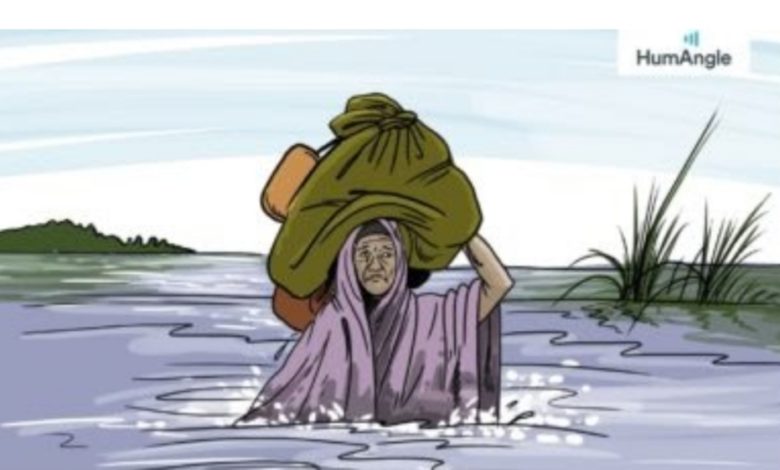Boko Haram: Women, Girls Remain Big Victims Of Attacks, Need Urgent Response
Women and girls are constantly attacked and subjected to sexual violence by Boko Haram in Northeast Nigeria. The government has no concrete plans to help victims heal and find justice. Amnesty International is calling for more action.

Attacks in Borno State, Northeast Nigeria, by Boko Haram insurgents have been marked with war crimes, including sexual violence perpetrated against women and girls.
Preying on their vulnerability, the insurgents target women and girls as collateral damage during attacks. Yet, there are no plans by the Nigerian government to provide help for these victims.
In February and March 2021, Amnesty International (AI) interviewed 22 people in a cluster of villages in Northern Borno State that Boko Haram has repeatedly attacked since late 2019.
During violent raids, Boko Haram fighters killed people trying to flee and looted livestock, money, and other valuables.
“As Boko Haram continue their relentless cycle of killings, abductions and looting, they are also subjecting women and girls to rape and other sexual violence during their attacks. These atrocities are war crimes,” said Osai Ojigho, Director of AI, Nigeria.
She added that the targeted communities have been abandoned by security forces that are supposed to protect them, and “are struggling to gain any recognition or response to the horrors they have suffered. The Nigerian authorities must urgently address this issue.”
After repeated displacement, the affected communities have mostly moved to military-controlled areas, but many have yet to receive any humanitarian assistance.
Rape and other sexual violence
Survivors and witnesses described attacks involving sexual violence in at least five villages in the Magumeri local government area of Borno State. During raids, usually at night, Boko Haram fighters raped women and girls who were caught at home or trying to flee.
One woman was physically assaulted by Boko Haram fighters as she fled from an attack in late 2020. She crawled to a home and hid there with her children, and saw fighters return and enter a nearby home.
“In the next house, I started hearing some women were shouting and screaming and crying. I was very afraid. After some minutes, maybe 30 minutes, I saw the men come out of the house. There were five or six of them with their guns. Then afterwards, the women were confused. Their dresses were not normal,” she said.
AI also interviewed three other witnesses who described the same attack, including hearing womens’ screams and seeing them extremely distressed after Boko Haram left. A traditional healer said she cared for several rape victims after the attack.
The same healer had previously treated two other survivors, including one who was under 18 years old, after a Boko Haram attack on another village. She said, “I could see the pain on their faces. [The first survivor] told me what happened. I saw her private parts. They were very swollen. So I understood it was more than one or two people who had raped her. She was suffering.”
Another woman told AI that during the same attack, fighters shot people who were running away, then came to her house and sexually assaulted her. She said, “The men entered my room. I asked what they wanted. They took my jewellery and belongings. Then they fell on me.”
Some witnesses also described Boko Haram abducting women during several attacks, taking them away on motorbikes. The women were returned to their village days later, showing clear signs of trauma.
Rape and other forms of sexual violence constitute war crimes in the context of the conflict, as defined under the Rome Statute.
No survivors, interviewed by AI, appear to have accessed formal health services. Stigma and fear of repercussions mean such incidents are significantly underreported, even within affected communities. At least one of the survivors continues to suffer health complications some months later.
Access to abortion is illegal in Nigeria, except when life is at risk, preventing survivors of from accessing safe and legal abortion.
HumAngle has covered several tales of women affected by the Boko Haram attacks. One of such stories is that of Balu Agah, who was abducted by the insurgents when she went to fetch firewood.
Many women remain frustrated that no government or humanitarian organisation representative has spoken to them on the targeting of women during attacks, and what support is available to them. Many added they wished the government would acknowledge and apologize for what happened, and bring the perpetrators to justice.
Support Our Journalism
There are millions of ordinary people affected by conflict in Africa whose stories are missing in the mainstream media. HumAngle is determined to tell those challenging and under-reported stories, hoping that the people impacted by these conflicts will find the safety and security they deserve.
To ensure that we continue to provide public service coverage, we have a small favour to ask you. We want you to be part of our journalistic endeavour by contributing a token to us.
Your donation will further promote a robust, free, and independent media.
Donate HereStay Closer To The Stories That Matter




